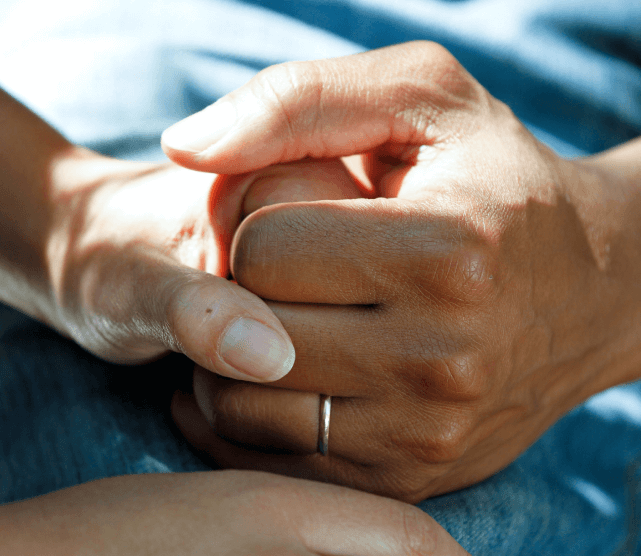Life Lessons from an Unpredictable Diagnosis
Topic: Real Talk: Survivor, Patient & Family Stories

By Joe Barone-
“What?”
It is a frustrating, one-word question many of us exclaim when something in our lives seems completely surreal.
Oftentimes, it’s provoked by something so egregious and so incomprehensible that we can only muster up this first reaction in our minds.
“What?”
It was the response by Michael and Debbie, whose full names have been omitted to respect their privacy, when Michael was blindsided by a very aggressive Stage IV pancreatic cancer diagnosis in a Maryland emergency room in late October 2012.
“He was the healthiest man in the world,” his wife of 41 years, Debbie, shared. “He didn’t take any medication, and he even played tennis three times the week of his diagnosis.”
All you can do is ask: “What?”
According to Debbie, Michael’s symptoms came out of nowhere. He didn’t have a family history of pancreatitis or pancreatic cancer, and genetic testing didn’t reveal any mutations.
“One day, he said to me: ‘I have these weird symptoms. I have bright yellow urine, and I itch. I’ve been trying not to drink a lot during tennis; maybe I’m just dehydrated.’”
But Debbie knew something was wrong and immediately called her son, a physician in San Francisco, who told her Michael should see a doctor urgently. When they couldn’t get an appointment right away, their primary care doctor advised taking Michael to the hospital.
At the emergency room, doctors completed blood work and noticed Michael was jaundiced. From there, an ultrasound was conducted and detected a large mass on his pancreas. Further tests revealed inoperable masses on his liver and his lungs, leading to the insertion of a stent in Michael’s bile duct the next day. The countless tests and avalanche of distressing results took a mental and physical toll on Michael and Debbie.
In a two-day span, Michael and Debbie were experiencing emotions and thoughts across the spectrum—shock, confusion and sadness, but also determination in pursuing treatment options. While anger may have gripped many in similar circumstances, Michael was consumed with helping others, passing on the reins of his business and putting everything in order for Debbie.
Two weeks earlier, the couple had been across the country, visiting their son and daughter-in-law and playing with their grandchildren. Now, they were fighting back tears and comforting each other in a hospital room following the life-altering news.
“I just couldn’t understand,” Debbie confessed. “I asked my son: ‘What did I miss?’ To which he said: ‘Mom, you didn’t miss anything. He was fine. He was playing with the kids, carrying the kids, everything was fine.’”
Michael passed away in 2013, only 100 days after he was diagnosed with pancreatic cancer. He had just turned 63 years old.
In this short time, as Debbie paid bills by Michael’s side in bed, he gave her invaluable household and financial instructions in a meticulous notebook of crucial information that he created for her almost immediately upon receiving his diagnosis. It was a final act of love for his cherished wife; he was determined to continue caring for her.
“Going through this unpredictable disease changes you. It refocuses you, puts things into perspective,” she said.
It’s why, after some time for herself, Debbie got involved with the Lustgarten Foundation. She felt the need to give back and honor Michael.
“I believe that this is an excellent charity because all donations directly fund research, rather than administrative costs,” she said. “The Lustgarten Foundation does great things for patients and families faced with pancreatic cancer, and that’s why I started to get involved.”
“I couldn’t look at any websites for a long time,” she admitted. “It was too painful to reflect on the depth of what had happened. We had no time to do anything. It was too fast. Michael went from feeling fine to being intensely ill, and none of the available treatments were effective.”
Since 2018, Debbie and her family have donated to the Foundation. In 2019, they were invited to the opening of Lustgarten’s new dedicated pancreatic cancer research laboratory at Johns Hopkins in Baltimore, MD. Along the way they also have taken part in the Foundation’s Pancreatic Cancer Research Walks both in person and virtually. In 2021, Debbie and a friend sponsored the Foundation’s Doctors’ Day matching gift program.
“I’ve learned this terrible disease can come out of nowhere, even if you’re completely healthy and have no risk factors,” Debbie said. “That’s why we need to continue to fund research for early detection, treatment and a cure.”

